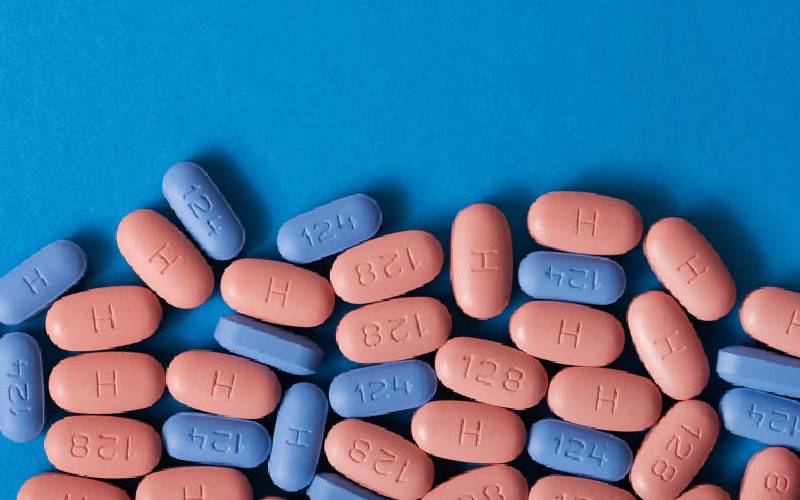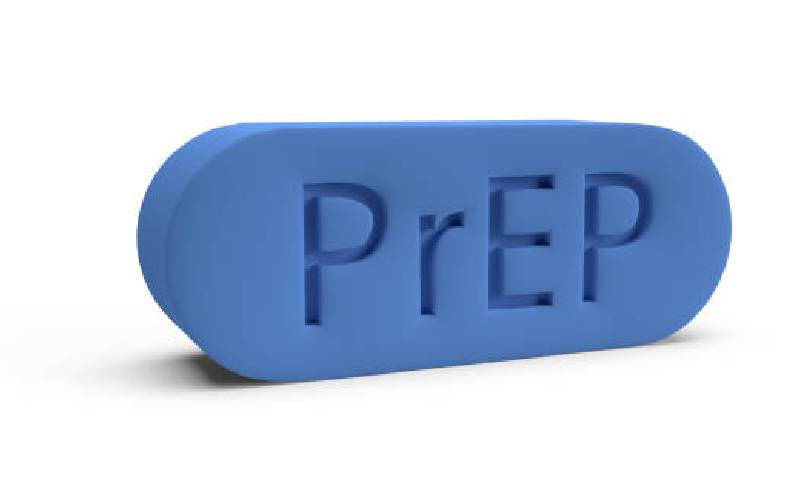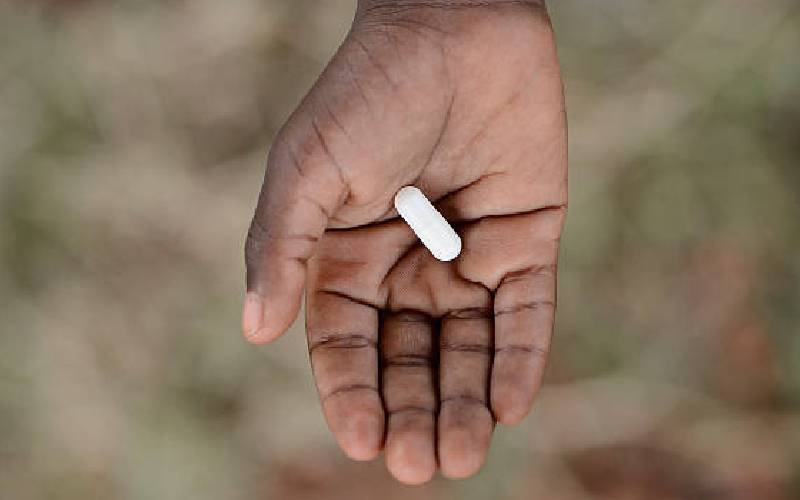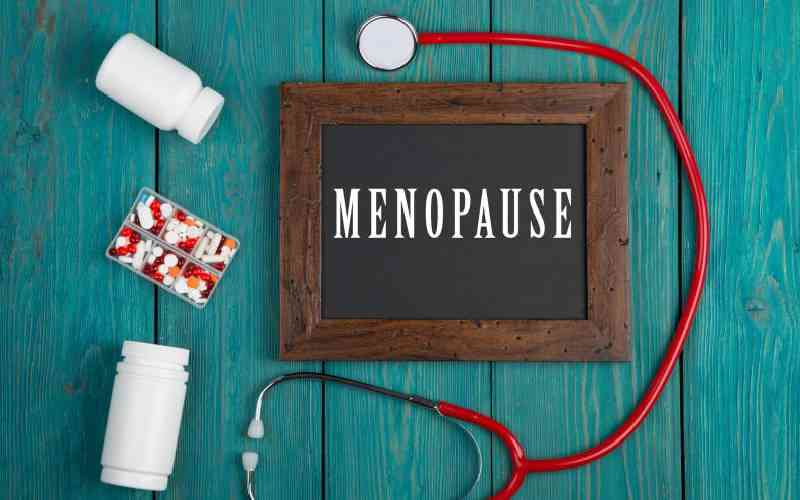
Pre-Exposure Prophylaxis (PrEP) pills. [File, Standard]
Joan Okinyo (not her real name) a sex worker is at her single-roomed house in the fishing village of Sindo, Homa Bay County. She opens a drawer and pulls out a white container. After shaking it, she opens it.
It is easy to tell her frustrations from the look on her face. The container is empty.
A few months ago, it contained capsules of the precious Pre-Exposure Prophylaxis (PrEP), an HIV prevention medicine that had been her protection against getting infected.
She hides the medicine in the container from the prying eyes of her child, a Grade Four pupil who does not know what her mother does for a living.
But all is not well with Okinyo.
The difficulty in accessing the medicine, stigma and being in a high-risk population worries her with each passing day. She is among the high-risk groups that have been on the drugs to protect themselves against HIV infection.
Some of the risk groups include; adolescent girls and young women, female sex workers, men who have sex with men and serodiscordant couples – where one partner may be living with the virus.
For the past year, a number of programs that offered HIV services in the region wound up, therefore impacting access to HIV prevention medicine. And although county governments say they have scaled up access to the vital PrEP medicine, users claim that access has not been forthcoming.
“It is not easy for us as sex workers. Getting supplies has become a huge challenge because one of the groups that provided us with the drugs pulled out,” she says.
She is among the many sex workers in the region who have been relying on the drug to protect themselves against the disease.
For almost two years, she says she has been was among a group of 100 other sex workers who had been relying on PrEP to protect themselves against the disease in Sindo town.
According to the mother of two, she and other sex workers had been travelling to Homa Bay to access the drug from a non-governmental organisation, but with the economic shocks brought about by the Covid pandemic, it has now become more difficult for them to access the drugs.
The situation was worsened after a number of health partners that had been providing HIV management and control services in the county, pulled out at the height of the pandemic after their programs ended.

PrEP pill. [iStock]
The developments also had a ripple effect on other interventions to fight HIV, including the voluntary male circumcision that was being undertaken in the region.
But for Okinyo and her group, fears that the decline in supplies of PrEP could worsen HIV prevalence in the region.
Interviews with a number of high-risk groups in several beaches in Homa Bay County established that most of them have been unable to access PrEP drugs.
At Nyachebe beach in Suba North Constituency, a group of fishmongers claim that they have been having difficulty accessing HIV-prevention drugs because of the high cost of travel.
In the past, they would get the medicine at their doorsteps through humanitarian groups that supplied the medicines but with most partners gone, they now have to travel long distances to access the medicine.
In October last year, the group were dealt a huge blow at the height of the pandemic after a partner that supplied sex workers and high-risk groups with PrEP pulled out.
This is after the five-year program they were implementing on HIV prevention ended.
The departure of Impact Research and Development Organization (IRDO) left about 2,500 sex workers that had been relying on their services vulnerable.
Through IROD’s support, the sex workers had been the vital PrEP drugs and female condoms free of charge. The drugs are taken before sex to prevent HIV infection in case they are exposed to the viru.
Those who are HIV positive had also been getting the Antiretroviral (ARV) drugs for free at designated places and did not spend any fare because it is a walking distance.
Now, however, the vulnerable groups are struggling to stay safe and ensure that the rate of infections amongst them does not increase.
Sophia Yusuf (not her real name), a sex worker in Suba, says they are at higher risk now as their clients, mostly fishermen, do not care about protecting themselves against HIV.
“Travelling to other places to get the drugs has been very difficult,” said Yusuf.
The sex workers say, however, say it is difficult to stop sex work, because that is their main source of livelihood.
Questions however remain as to how the government intends to fill the gaps that key partners left following the expiry of their programs.
Homa Bay County Government however claims it has intervened for more than 2,500 female sex workers after an NGO quit the area.

PrEP pill. [iStock]
Chief Officer for Health Gerald Akeche said they are providing residents with the services and have been ensuring that high-risk populations access PrEP services.
Akeche said they have enough ARV drugs and condoms in Mbita Sub-county hospital and other health facilities in the sub-county to serve all residents.
The Chief Officer told residents not to fear picking drugs and condoms from designated health facilities.
“Let nobody who is infected by HIV fear collecting drugs from any of our health facilities,” Akeche said.
Another programme which played a vital role in improving access to PrEP in the country, dubbed Jilinde and program funded by Bill and Melinda Gates Foundation, also closed shop last year, further affecting access for high-risk populations.
Jilinde Program was one of the projects at the forefront of the rollout of PrEP in Kenya.
Beneficiaries of the PrEP programs had been going to selected public and private hospitals to get their doses.
A report by the National AIDS and STIs Control Programme (NASCOP) shows the number of those undergoing “the cut” in Kisumu County has fallen from 900 a month to an average of 60.
 The Standard Group Plc is a multi-media organization with investments in media
platforms spanning newspaper print
operations, television, radio broadcasting, digital and online services. The
Standard Group is recognized as a
leading multi-media house in Kenya with a key influence in matters of national
and international interest.
The Standard Group Plc is a multi-media organization with investments in media
platforms spanning newspaper print
operations, television, radio broadcasting, digital and online services. The
Standard Group is recognized as a
leading multi-media house in Kenya with a key influence in matters of national
and international interest.











